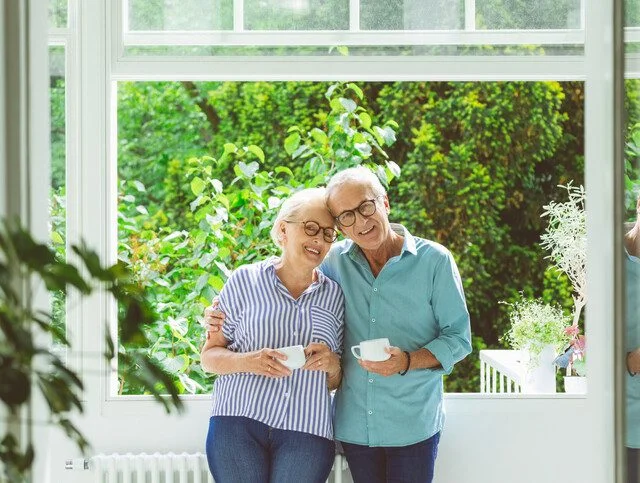Isolation and loneliness are more than just unfortunate circumstances or feelings. They can have a significant effect on the overall health and social wellness of seniors. In fact, studies have shown that loneliness is equivalent to smoking 15 cigarettes a day, can be worse than obesity, and may increase the risk of death by as much as 29%.

The risks of social isolation
Although social isolation and loneliness are difficult to measure, research shows that many adults 50 and older don’t have the relational connections vital to the social wellness of seniors. A recent study by the National Academies of Sciences, Engineering, and Medicine revealed:
- Social isolation significantly increases a person’s risk of premature death that rivals the risks of smoking, obesity and physical inactivity.
- Social isolation led to a nearly 50% percent increased risk of dementia.
- Poor social connectedness was associated with a 29% increased risk of heart disease and a 32% increased risk of stroke.
- Loneliness was associated with higher rates of depression, anxiety and suicide.
- Loneliness among heart failure patients was associated with an increased risk of death by a factor of four, a 68% increased risk of hospitalization, and a 57% increased risk of emergency department visits.
The impact of COVID-19
While the need for human connections has long been understood, the recent COVID-19 pandemic and subsequent social distancing efforts have only exacerbated the impact on the social wellness of seniors – a population already vulnerable to social isolation and loneliness.
Younger generations have felt these effects as well, but while they are making the most of connecting to work, school and family members via laptops and tablets, seniors are struggling. Computers and smartphones can be intimidating to older adults. In fact, nearly a third of Americans over 65 told Pew Research they didn’t feel confident with digital technology and nearly half felt uncomfortable setting up new devices without help. Finally, some seniors lack the broadband connection often necessary to handle video conferencing.

What can be done about it
Addressing loneliness isn’t as easy as “going out and finding something that interests you.” Social wellness for seniors involves close relationships with people they care about, satisfying social roles and a sense that their lives have value. These aren’t easy things for anyone to find, let alone older adults who often have cognitive, mobility or health issues.
Without question, our current socially distanced environment has exponentially increased the difficulty of battling loneliness and social isolation. But there are some things seniors can employ on a daily basis to help ward off the risks of being cut off from others both physically and emotionally.
- Connect with family and friends in a meaningful way that works best for you. This could include connecting by phone, video chat, or even talking outside at a distance.
- Be appreciative. Loneliness can put the focus solely on us and our hardships. Appreciating friends, family, a good meal, or even a sunny day can shift our attention from ourselves and help us open up relationally to others.
- Focus on things you can change. Dwelling on your current situation can lead to a loneliness spiral. Instead, focus on things you can control and work on them.
- Find enjoyment in being busy. Do a chore, write letters or short stories, or find a new hobby.
- Be positive. Spend time on people and activities that bring you joy. Take a break from the news (which tends to skew negatively) or at least scale back how much you consume.
- Be kind to yourself and others. When you treat yourself and others with compassion, you open up opportunities to make deeper connections.
- Develop a balanced, familiar routine. Develop a daily plan that includes physical activity, time for connecting with loved ones, a project or hobby and a relaxing pleasure.
The social wellness benefits of living in community
Because living alone, lack of participation in social groups, and fewer friends increase the risk for loneliness and isolation, senior living communities are naturally equipped to provide for the kinds of social interaction, care and activities that contribute to the social wellness of seniors. Many communities work hard to provide avenues for residents to interact with each other and explore hobbies and activities that help them stay engaged and connected.
If you’re considering a senior living community, see everything Claridge Court has to offer by filling out the brief contact form below. A representative will be in touch soon to discuss your plans and help you navigate this important decision.



